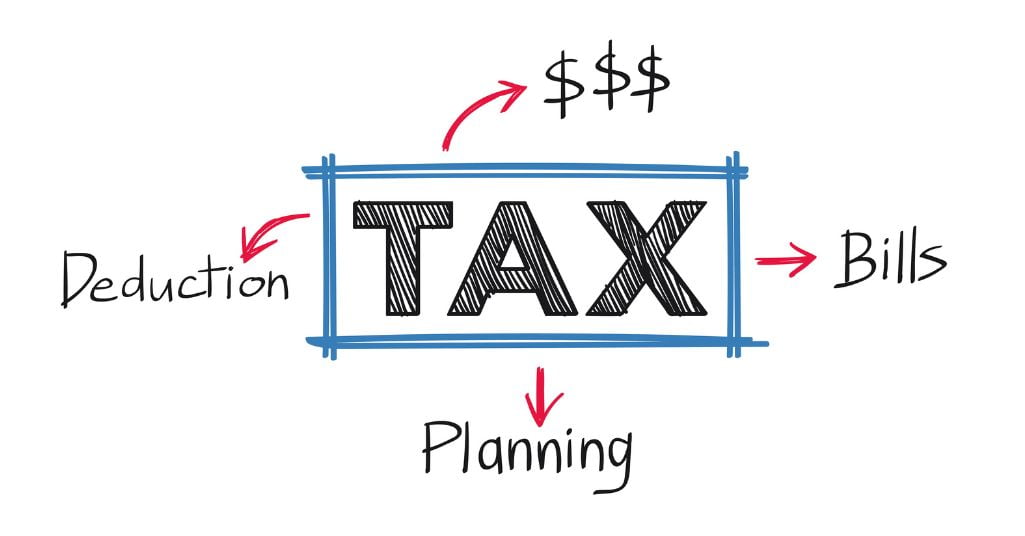Although taxes are an unavoidable feature of our financial lives, with some basic planning and awareness, you can definitely bring your tax burden down to a bare minimum. The Indian tax system gives you umpteen reasons to save tax in legitimate ways by offering a host of deductions, exemptions, and credits. This guide will walk you through some key strategies of saving taxes in India so that you may avail maximum benefit.
Understanding the Basics of Income Tax in India
The first and foremost thing that has to be considered is mere knowledge about income tax in India. The Indian income tax law is governed by the Income Tax Act, 1961, while the collection of taxes falls under the Income Tax Department.
Tax Slabs and Rates: Income tax in India is charged based on income slabs. Slabs vary based on your age group, whether an individual below 60 years, a senior citizen between 6080 years of age, or a super senior citizen above 80. The slabs are progressive and, as income increases, it attracts an increased rate of tax.
Source of Income: Incomes are classified under five heads:
- Income from Salary
- Income from House Property
- Profits and Gains from Business or Profession ·
- Capital Gains
- Income from Other Sources
Tax Deductions and Exemptions: The government offers numerous deductions and exemptions to facilitate lowering an individual’s total taxable income.

Maximizing Section 80C Deductions
- One of the most effective and common ways of saving taxes is under Section 80C. The deductions are laid from the continuing investments up to ₹1.5 lakh. This is how you can make the most out of it:
- Public Provident Fund (PPF): The amount invested in PPF is also liable for deduction under Section 80C. The very safe and taxfree return earned out of PPF makes it preferable among all.
- Employee Provident Fund (EPF): Automatically deducted from monthly wages, with such deductions in turn available for tax deductions.
- NSC or National Savings Certificate: It is within the tax ambit, but the initial investment attracts deduction under Section 80C.
- Life Insurance Premiums: Any premium paid to pay insurance on one’s own life, spouse’s life, or children’s lives is deductible.
- Equity Linked Savings Scheme (ELSS): ELSS mutual funds offer an avenue to earn capital appreciation and achieve tax savings under the provision of Section 80C.
- Principal Repayment of Home Loan: The principal amount of your home loan EMI is deductible from taxable income under Section 80C.
- Sukanya Samriddhi Yojana (SSY): Investments made under the SSY, a savings scheme for the girl child, are deductible.
Availing Deductions Under Section 80D
Section 80D provides deductions on the premium paid for health insurance. You can claim a deduction for:
- Self, Spouse and children: ₹ 25,000
- Parents (Below 60 Years): ₹25,000 extra
- Parents above 60 years: Up to ₹50,000
- Preventive Health CheckUp: Deduction avail up to ₹ 5,000 within the overall limits.
These deductions help reduce not only your tax liability but also offer financial security in case of a medical emergency.
Home Loan Benefit: Section 24b & 80EEA
Under Section 80E, interest paid on loan taken for higher studies is allowed as a deduction. The deduction would be available up to a maximum of eight years or on the full payment of interest, whichever is earlier. The loan can be taken for the individual, the spouse of the individual, or the children of the individual.
Save Tax Through Section 80E: Education Loan Interest
Donations to Charitable Section 80G: The deduction under this section allows donations to specified charitable institutions and funds. In this regard, the available deduction is 50% or 100% of the amount donated as per each particular institution and the type of donation. Contributions made to certain government relief funds, such as the Prime Minister’s National Relief Fund, get a 100% deduction without an upper limit.
Leveraging Section 80G: Donations to Charitable Institutions
The deduction under this section allows donations to specified charitable institutions and funds. In this regard, the available deduction is 50% or 100% of the amount donated as per each particular institution and the type of donation. Contributions made to certain government relief funds, such as the Prime Minister’s National Relief Fund, get a 100% deduction without an upper limit.
Taking Advantage of Section 80TTA: Interest on Savings Account
Interest is allowed on savings accounts with a bank, post office, or a cooperative society to a maximum deduction of ₹ 10,000 under Section 80TTA. In the case of senior citizens, under Section 80TTB, the maximum is ₹ 50,000, which also includes interest from fixed deposits and recurring deposits.
Tax Benefits for Senior Citizens
India extends more tax benefits to senior citizens:
- Higher Exemption Limit: ₹3 lakh for senior citizens between 6080 years, while super senior citizens above 80 years have the exemption limit at ₹5 lakh.
- Section 80TTB: As discussed above, a senior citizen avail a deduction of Rs 50,000 is allowed in the case of interest income from saving account, fixed deposits and recurring deposits.
- No Liability to Pay Advance Tax: Senior citizens who do not earn any sort of income from business or profession are not liable to pay any advance tax. They can pay their whole tax liability at the time of filing the return.

HRA Exemption and Rent Deductions
In the event that you are a salaried individual receiving a House Rent Allowance, the following exemption can be availed under section 10(13A) regarding rent paid by you:
Actual HRA received
50% of the salary (for metro cities) or 40% of the salary (for nonmetro cities)
Minus the 10% of salary
Deduction of ₹60,000 is allowable under Section 80GG of the Income Tax Act if the employee is not receiving HRA but is paying rent, subject to particular set conditions.
Capital Gains Exemptions
Capital gains on sale of capital assets like properties, shares and mutual funds tend to attract substantial taxes. However, certain types of exemptions are available as follows:
- Section 54: Exemption available on longterm capital gains from the sale of a residential property, if the gains are reinvested in another residential property.
- Section 54EC: Deduction in respect of longterm capital gain arising on transfer of any asset if the amount of gain is invested in the specified bonds of NHAI or REC.
- Section 54F: This section relates to exemption from longterm capital gains that has arisen on the sale of any asset, other than residential property, if such gains are reinvested in residential property.
Additional Tips for Save Tax
File Form 15G (for persons under 60 years) or Form 15H (for senior citizens) with your bank wherein your total income is less than the taxable threshold in order to avoid TDS on interest income.
- Reimbursement Claims: Certain expenses like telephone bills, internet bills, and leave travel allowance (LTA) can be reimbursed by your employer, reducing your taxable income.
- Income Splitting: The act of transferring assets to family members or creating a Hindu Undivided Family to split income and reduce the overall incidence of tax.
Conclusion for Save Tax in India
It is very important to do good tax planning so as to draw the maximum out of your financial health. The practice of the various deductions, exemptions, and strategies can take away a lot of your tax outgo in India. Find ways to save on taxes, and then ensure investments you make are in tune with your financial goals and risk appetite. Do take the help of a tax advisor or financial planner to customize these strategies based on your need and situation.